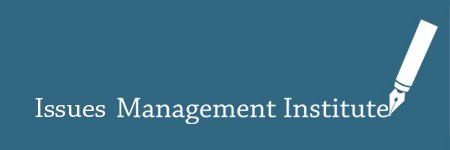Conjecture 2: Factual inaccuracies
Doctrine 2: Facts. Factual inaccuracies
Question: what is the most persistent inaccuracy about your organization?
In the beginning was the Word.* Ever since, the world became enormously complicated. The spoken word rustles at its best as a gown of satin, but more often than not as a schoolyard full of children: running in all directions. The written word is just as rustling.
Maybe social media nullified the difference. A tweet is something like written spoken communication. At any rate we exchange sounds and signs all day and we can disagree on almost every meaning of every word. A word like ‘refugee’ in the fall of 2015 fills a hennery with meanings. Whatever the case may be, we interchange sounds and signs all day long. When do we understand these words (1), recognize each others interests (2), develop a mutual understanding (3) and act accordingly (4). Is this perfect foursome to be considered as ‘communication’ or is it possible that communication can fail and still be communication.
Many organizations know the word ‘core business’. Chrystal clear. According to the organization that is. When it appears that others attribute a completely different meaning and significance to this core, than this meaning is of course by definition … inaccurate. Opinions are valid, with or without facts and even with factual inaccuracies. But then, do facts actually exist, or are there any facts without meanings attributed to them. How do we use language and does that matter when we communicate? Do facts play a relevant role? “Meaning is use. Words are not defined by reference to the objects they designate, nor by the mental representations one might associate with them, but by how they are used. (…) Meaning is a product of practice and every effort of trying to fix it outside fluctuating practice is evasive.”** When the rules for the use of language are the result of accordance between the members of a language community, without external, objective restrictions for that use like ‘facts’ or ‘the world’, does it necessarily follow that the truth is also a product of the accordance?*** Doesn’t everyone want his or her truth to be shared by others, if only as a condition for a successful execution of policies. To conceive, organize, lead and execute usually develops more smoothly when behavior in general and some acts in particular are not only being carried out, but also appreciated as the right behavior. In the beginning there was rhetoric, later PR. ‘Be good and tell it’ the adagium of public relations, is not such a bad adagium after all.
Next time: A bad reputation lasts through the centuries
*The Gospel according to John
**L. Wittgenstein, Philosophical Investigations, Oxford Blackwell, 1958:198.
***Anthony C. Grayling, Wittgenstein, Rotterdam: Lemniscaat, 1996:116.

Leave a Reply